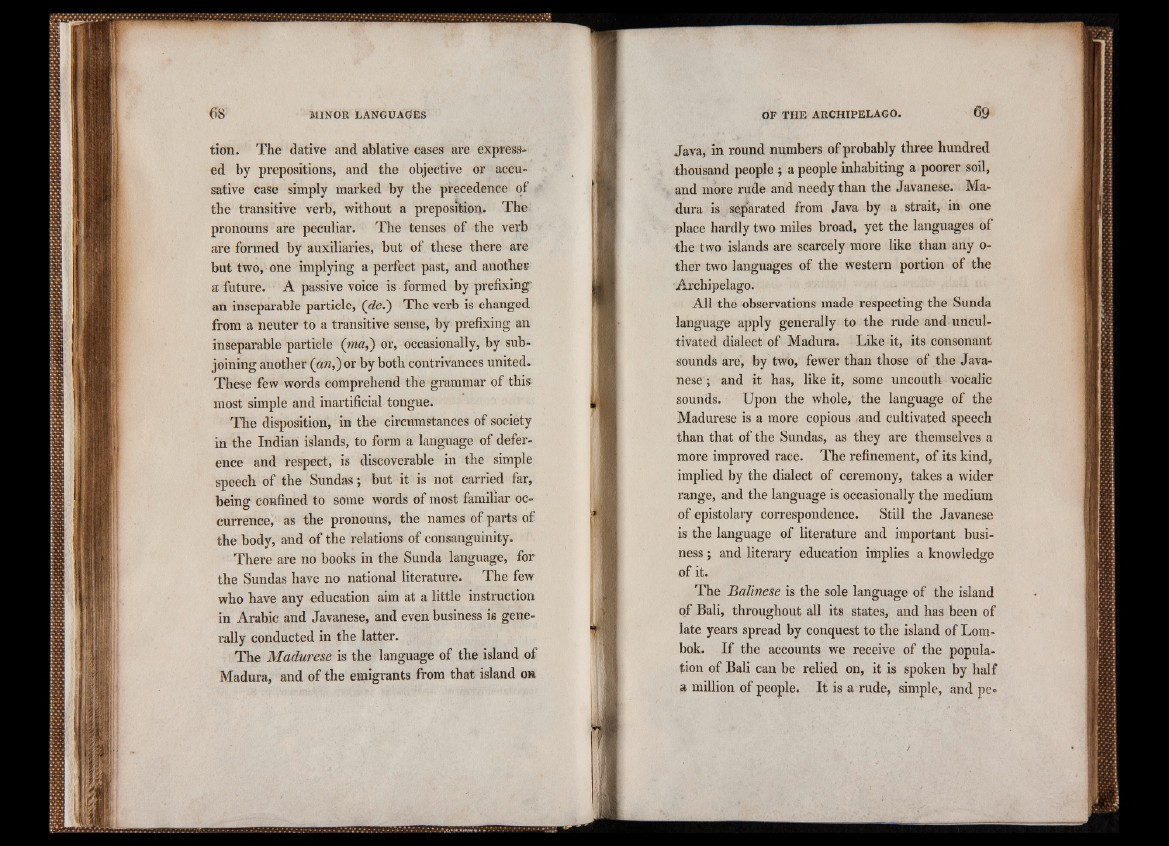
tion. The dative and ablative cases are expressed
by prepositions, and the objective or accusative
case simply marked by the precedence of
the transitive verb, without a preposition. The
pronouns are peculiar. The tenses of the verb
are formed by auxiliaries, but of these there are
but two, one implying a perfect past, and another
a future. A passive voice is formed by prefixing':
an inseparable particle, (efe.) The verb is changed
from a neuter to a transitive sense, by prefixing an
inseparable particle (waa,) or, occasionally, by subjoining
another (aw,) or by both contrivances united.
These few words comprehend the grammar of this
most simple and inartificial tongue.
The disposition, in the circumstances of society
in the Indian islands, to form a language of deference
and respect, is discoverable in the simple
speech of the Sundas; but it is not carried far,
being confined to some words of most familiar occurrence^
as the pronouns, the names of parts of
the body, and of the relations of consanguinity.
There are no books in the Sunda language, for
the Sundas have no national literature. The few
who have any education aim at a little instruction
in Arabic and Javanese, and even business is generally
conducted in the latter.
The Madurese is the language of the island of
Madura, and of the emigrants from that island 0»
Java, in round numbers of probably three hundred
thousand people ; a people inhabiting a poorer soil,
and more rude and needy than the Javanese. Madura
is separated from Java by a strait, in one
place hardly two miles broad, yet the languages of
the two islands are scarcely more like than any o-
ther two languages of the western portion of the
Archipelago.
All the observations made respecting the Sunda
language apply generally to the rude and uncultivated
dialect of Madura. Like it, its consonant
sounds are, by two, fewer than those of the Javanese
; and it has, like it, some uncouth vocalic
sounds. Upon the whole, the language of the
Madurese is a more copious -and cultivated speech
than that of the Sundas, as they are themselves a
more improved race. The refinement, of its kind,
implied by the dialect of ceremony, takes a wider
range, and the language is occasionally the medium
of epistolary correspondence. Still the Javanese
is the language of literature and important business
; and literary education implies a knowledge
of it.
The Balinese is the sole language of the island
of Bali, throughout all its states, and has been of
late years spread by conquest to the island of Lombok.
If the accounts we receive of the population
of Bali can be relied on, it is spoken by half
a million of people. It is a rude, simple, and pe